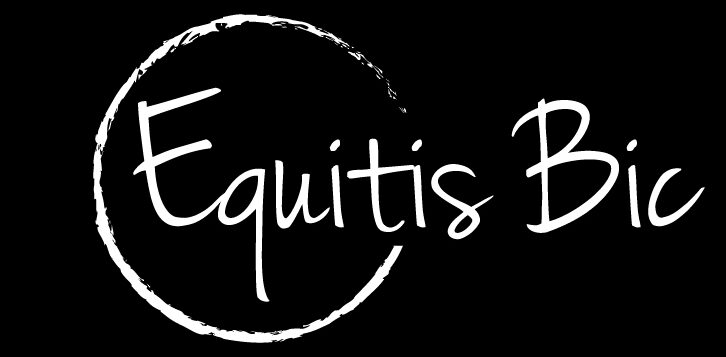Why Don’t I Remember My Dreams?

Whenever I’m discussing dreams with dreamers the subject of remembering dreams comes up. Not being able to remember dreams is such a common occurrence that nearly every dreamer I’ve talked to wants to find out what they can do to remember their dreams. The answer isn’t as difficult as you may imagine.
One of the dominant reasons dreamers don’t remember many dreams is that they just let their dream life happen. Dreamers often don’t spend any time at all thinking about what kinds of dreams they want to have. If they become intentional about their dreams at all, they make declarations about what kind of dreams they don’t want to have. Things like, “I don’t want to have any more dreams about my ex!”
The kind of dream intentionality that works is twofold. Asking to have a specific large-scale dream such as a direction or invention dream or asking for a dream about a specific topic such as your career or personal relationships. Then there’s perhaps the most vital act of dream intention — recording your dreams in a dream journal. The simple act of recording your dreams is the best way to remember your dreams.
Asking for a Specific Dream
If you’re like most dreamers you don’t realize you can ask for specific dreams, but you can. All you have to do is ask. You may not get that specific dream the first night you ask for it, or even the night after that. The dream may not even look like what you expect it to look like. Yet, this proven ancient principle works.
When I found out that I could ask for a specific dream I went a bot overboard. I asked for five or six specific dreams the first night and quickly discovered that dream intentionality works best when taken one step at a time.
A couple years ago I kept running into dreamers who told me about all the lucid dreams they had. I wanted a lucid dream really bad but never seemed to have any when I just allowed my dream life to happen. Then, one night, determined to have a lucid dream, I set out my dream journal and a well sharpened pencil next to my pillow and asked the Dreamgiver for a lucid dream. It wasn’t the first time I asked. To be honest, it was like the tenth. By this time, I was determined to approach this request with the most intentionality I could think of.
Laying down and drifted off to sleep around 10:30 pm, I had a lucid dream that lasted one hour. I was so excited when I woke up that I immediately wrote it down and was too excited to get back to sleep. I’ve never forgotten that first lucid dream. Being intentional about a specific dream is a great way to remember the dream because you, as a dreamer, have invested in being intentional.
Top Reasons Dreamers Don’t Remember Their Dreams
Worry and Stress
Not Honoring Dreams
Seldom Being Intentional About Dreams
Never writing down a dream when it comes to mind later in the day
Rarely recording dreams upon waking
How Do I Remember More Dreams? Record them!
The single most important thing you can do today to remember your dreams is to record them in a dream journal. It doesn’t matter if it’s an electronic journal on your phone or a physical journal you keep on your nightstand. If you record your dreams as close to the time you awaken from them, you may not remember the dream later that day, but you can never forget it because you have a record of the dream.
Recording your dreams can take many different forms because everyone has various pressing obligations once they get out of bed. Many times dreamers get frustrated with me telling them to record every dream they have every morning immediately upon waking up. Recording a single dream can sometimes take upwards thirty minutes or more to record all the details. Most people think recording a dream means recording every single detail of the dream when they don’t need to.
Keeping track of the highlights of a dream only takes a few minutes. Jot down the main points and leave out details such as the color of every car, or the position of every person in the dream. You can also abbreviate where the dream takes place. My current house but there are extra rooms, or my grandma’s house, but different are good alternatives to much longer descriptions.
If all you have to go on is the action happening within the dream, ask yourself who is doing the action? Who is receiving the action? Keeping track of the emotions you felt when you were inside the dream can also greatly help you arrive at the basic interpretation of the dream.
Here’s a link on How to Tell Who A Dream is About
How Can I Remember More Dreams? Honor Them!
Throughout all the years of my life, I can remember people being honored for various things, but I’d never heard anyone make a statement about honoring what you dream. Not until I started studying dreams, that is. When I began honoring my dreams it made all the difference in helping me remember more dreams. Instead of honoring dreams dreamers often complain about how strange, weird or hard to understand a dream is. In doing this they end up dishonoring dreams. Dishonoring dreams is a daily occurrence across the world as dreamers bemoan dreams for being confusing and flying in the face of natural reason.
As I’ve helped dreamers understand their dreams I’ve discovered a dream can be a gift. They’re gifts tailor-made for individual dreamers. When dreamers don’t honor the gift of their dreams, it’s like dishonoring a birthday gift.
Those who are important enough to be a part of your life desire to honor you by presenting you with a birthday gift. They don’t just pick the first thing they see on a stone shelf and decide to give it to you. They’ll put some thought into it based on their relationship with you and what they know you love and enjoy doing. Birthday gifts are very personal.
Dishonoring a dream is like being presented with a gift for your birthday, open it up and show no reaction whatsoever. Then you close up the gift, walk into a back bedroom and put the gift on the top of a shelf in a closet and close the door. How excited do you think they’ll be to get you a gift for your next birthday?
When you dishonor your dreams you remember less dreams until they all but vanish.
Ghostly Fragments
What if you only recall ghostly fragments of a dream here or there? Are fragments of dreams worth recording?
Yes! Dream fragments contain meaning and they can be understood even if all they consist of are an image of one thing against a blank background. When you record these ghostly dream fragments along with longer dream descriptions, you are giving dreams a greater importance within your life. You are honoring your dreams and this is one of the keys to having and remembering more dreams.
Peace is the Potting Soil of Dreams
Equitis Bic
Is Intentionality Foolproof?
It’s possible to be intentional about your dreams, honor them and have less dreams. This doesn’t mean there’s a flaw in the principle of intentionality or honor. The level of stress an individual experiences has a huge effect on their dream life. This doesn’t mean there’s a flaw in the principle of intentionality or honor. The level of stress an individual experiences had a huge effect on their dream life. If you’re a worrier, staying up night after night wondering how all the problems in your life are getting to be solved, you won’t have many dreams.
Peace is the potting soil of dreams. Peace fosters sleep and when a dreamer has a restful, peaceful night they have more dreams. Without that peace, you can apply as many ancient principles as you want and still not remember many dreams. If you want to remember more of your dreams take necessary steps to promote peace in your life, especially before you go to bed.
